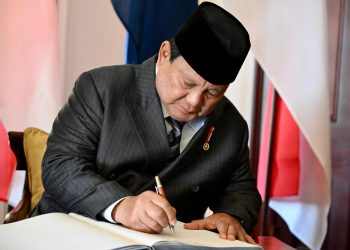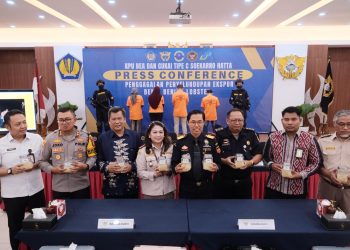Jakarta, Indonesia Sentinel — Nearly 2,000 candidates for Indonesia’s 2024 civil servant recruitment program (CPNS) have withdrawn from the process. The National Civil Service Agency (BKN) citing reasons ranging from assignments in remote areas to dissatisfaction with expected salaries.
“There are 1,967 candidates who have withdrawn,” said BKN Head Zudan Arif Fakrulloh during a hearing with Commission II of the House of Representatives in Central Jakarta, Tuesday (April 22).
According to Zudan, many of the withdrawals came after the government implemented an “optimization scheme” designed to fill unclaimed civil servant positions across the country. Under this policy, candidates who failed to secure a position at their preferred institutions were reassigned to other government agencies or locations that lacked applicants.
He gave the example of a candidate who applied to become a sociology lecturer at the University of Jember (UNEJ) but failed to qualify. Because no one applied for a similar post at the University of Nusa Cendana in Kupang, East Nusa Tenggara (NTT), the top two scorers from the UNEJ pool were reassigned to the vacant positions in Kupang and deemed successful.
“Through this optimization, they became eligible because the position at Nusa Cendana was left empty,” Zudan explained.
The resignations came from various sectors, with the largest numbers from five government institutions:
- Ministry of Education, Culture, Research, and Technology: 640 withdrawals
- Ministry of Health: 575 withdrawals
- Ministry of Communications and Information: 154 withdrawals
- Election Supervisory Agency (Bawaslu): 131 withdrawals
- Ministry of Public Works and Housing (PUPR): 121 withdrawals
Zudan outlined 12 key reasons behind the mass withdrawals, with the most common being remote placements. A total of 1,285 candidates declined offers due to assignments far from their current place of residence.
“It’s true that distance was the biggest issue. Many candidates were placed in universities scattered across Indonesia, far from home. But actually, they could have accepted the placement and applied for a transfer after five years, as per ministry regulations,” he said.
Other reasons included:
- Lack of family approval (320 cases)
- Elderly parents’ health concerns (156)
- Withdrawal due to agency recommendation (92)
- Pursuing further education (44)
- Personal health issues (21)
- Existing employment contracts (13)
- Mistaken unit/form selection (11)
- Spouse’s health condition (8)
- Incomplete documentation (8)
- Perceived ineligibility for the position (6)
- Dissatisfaction with future income as a civil servant (3)
Despite the setbacks, Zudan praised the optimization policy led by Minister of Administrative and Bureaucratic Reform, Rini Widyantini, which he said successfully placed 16,167 candidates who might have otherwise gone unassigned.
Read Also:
Without the optimization effort, thousands of vacancies would have remained unfilled, leading to budget inefficiencies and gaps in public service delivery, he added.
Zudan also clarified that there would be no penalties for those who chose to withdraw under the optimization scheme. “This is a matter of choice. If a candidate doesn’t want to accept the offer, that’s perfectly fine. It’s the state’s goodwill to ensure that no vacancies go to waste,” he concluded.
The 2024 CPNS cycle has drawn public scrutiny for highlighting the long-standing challenges of staffing remote regions and the appeal of public service careers amid rising living costs and shifting workforce expectations.
(Raidi/Agung)

























